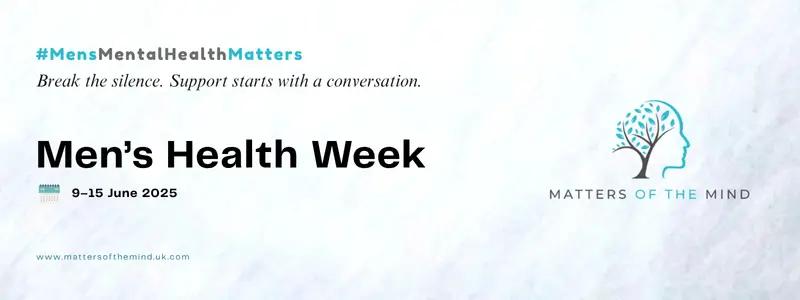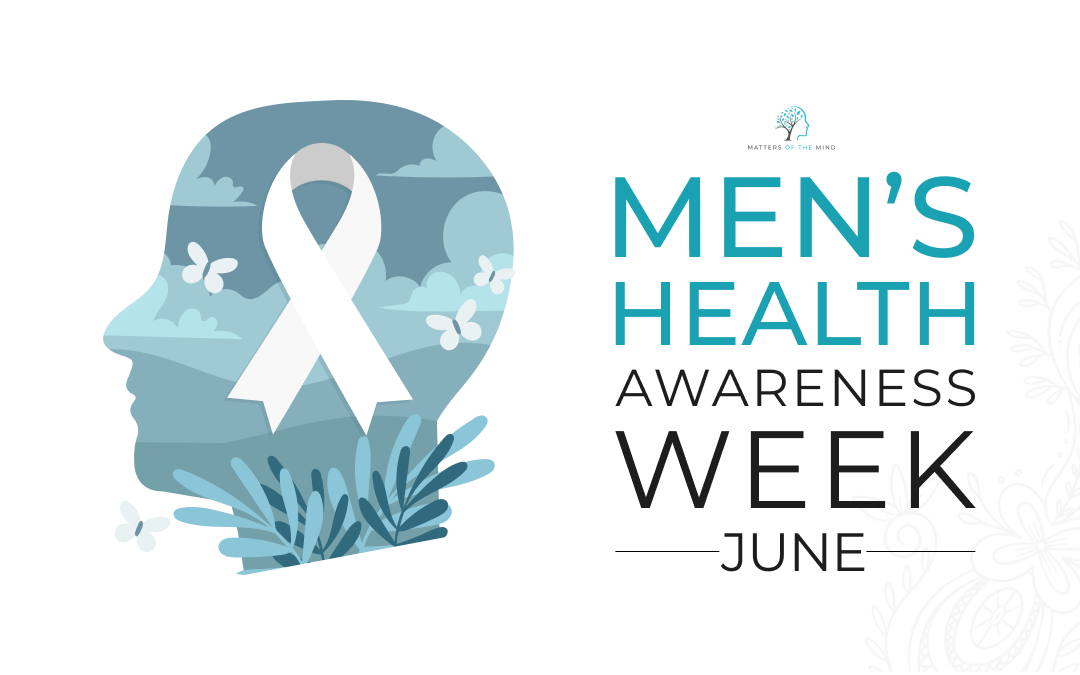What’s Men’s Health Week?
When is Men’s Health Week Celebrated?

The Mental Health Crisis Among Men
According to the current findings:
- Men are three to four times more likely to die by suicide than women. In the UK, suicide remains the leading cause of death for men under 50.
- Men are more likely to turn to alcohol, substance use, or risky behaviour to cope, rather than seeking professional help.
- Globally, men are less likely than women to seek help for depression, anxiety, or other mental health issues.
Why Men Are at High Risk?
1. Cultural expectations
2. Lack of emotional literacy
3. Isolation
4. Misunderstood symptoms
How Can We Support Men’s Mental Health?

Start Conversations

Normalise Therapy and Self-Care

Watch for the Silent Signs

Support Male-Friendly Mental Health Resources
Mental Health Care Is a Shared Responsibility
Final Thoughts
Recognition Is the First Step Toward Change
Dr Kavita Deepak-Knights offers compassionate, personalised therapy tailored to your unique needs. Whether you’re facing stress, anxiety, depression, or just feeling overwhelmed, you’re not alone.
Let’s start the conversation together!
📍Windsor, Berkshire


